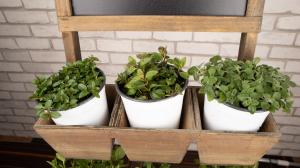Why Are My Young Tomato Plants Wilting?
Tomato plants are a popular crop among gardeners, and for good reason. Not only do they provide fresh, delicious tomatoes throughout the growing season, but they are also relatively easy to care for. However, sometimes even the most seasoned gardener can encounter issues with their tomato plants. One common problem that many people experience is wilting of young tomato plants. Here, we’ll explore some of the reasons why this may be happening and what you can do to prevent it from occurring.
Overwatering
One of the most common reasons for young tomato plants to wilt is overwatering. While it may seem counterintuitive, too much water can actually cause the roots of the plant to suffocate and die, resulting in wilting. If you notice that the soil around your tomato plants is constantly wet and soggy, try cutting back on your watering schedule. You should also ensure that your plants are not in an area where water tends to accumulate, as this can also lead to overwatering.
Underwatering
On the flip side, underwatering can also cause tomato plants to wilt. If you notice that the soil around your plants is dry and cracked, it may be time to give them a good watering. However, be sure not to overwater them, as this can lead to the aforementioned problem of suffocating roots. As a general rule of thumb, you should aim to keep the soil around your tomato plants moist, but not waterlogged.
Disease
Another reason why your young tomato plants may be wilting is disease. There are numerous diseases that can affect tomato plants, including bacterial wilt, fusarium wilt, and verticillium wilt, just to name a few. If you suspect that disease is the culprit behind your wilting plants, it’s important to act quickly. Remove any infected plants or plant parts, and be sure to sterilize your garden tools in between uses to prevent the spread of disease.
Pests
Finally, it’s possible that pests could be causing your young tomato plants to wilt. One common pest that affects tomato plants is the tomato hornworm. These large green caterpillars can quickly strip a tomato plant of its leaves and cause it to wilt. If you notice any signs of pest damage on your plants, such as holes in the leaves or visible insect activity, consider using an organic pest control method, such as neem oil or beneficial insects like ladybugs, to help manage the problem.
Conclusion
In conclusion, there are several reasons why your young tomato plants may be wilting. Overwatering, underwatering, disease, and pests are all possible culprits, so it’s important to carefully observe your plants and diagnose the problem as quickly as possible. By taking the necessary steps to correct any issues with your plants, you can help ensure a healthy and bountiful tomato harvest for years to come.

 how many times do yo...
how many times do yo... how many planted tre...
how many planted tre... how many pine trees ...
how many pine trees ... how many pecan trees...
how many pecan trees... how many plants comp...
how many plants comp... how many plants can ...
how many plants can ... how many plants and ...
how many plants and ... how many pepper plan...
how many pepper plan...































